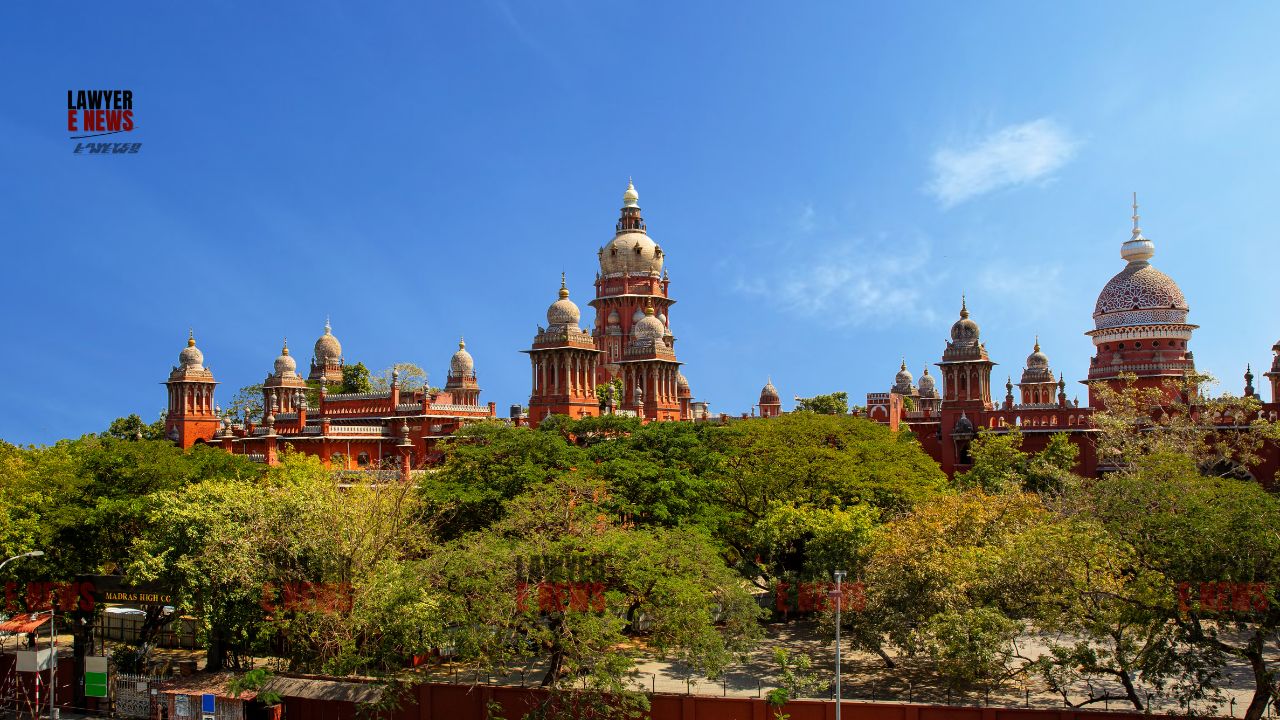-
by Admin
15 February 2026 5:01 PM



The Madurai Bench of the Madras High Court, in a significant ruling on November 12, 2024, dismissed the writ petition filed by C. Pakkir Maideen & Others (W.P.(MD) No. 18174 of 2018) seeking registration of an adoption deed dated July 7, 2018. The petitioners, belonging to the Muslim community, sought a direction for the registration of the adoption deed executed between them. However, the Court ruled that adoption deeds, especially by Muslims, have no legal validity unless governed by the mandatory provisions of the Juvenile Justice (Care and Protection of Children) Act, 2015 (JJ Act, 2015).
The Court clarified that Muslim personal law (Shariat), as recognized under the Muslim Personal Law (Shariat) Application Act, 1937, does not recognize adoption as a mode of filiation. However, Section 3 of the Act permits customs related to adoption, wills, or legacies to have the force of law only if declared by the individual or proved before a competent court.
"Adoption is not enumerated as a subject under Section 2 of the Muslim Personal Law (Shariat) Application Act, 1937, but customs relating to adoption, if proven, may apply. However, absent such proof or declaration, adoption under Muslim personal law cannot be enforced."
The Court emphasized that irrespective of personal laws, the JJ Act, 2015 provides a uniform legal framework for adoption, superseding conflicting religious practices.
The Court observed that Sections 17 and 18 of the Registration Act, 1908, which list documents requiring mandatory registration, do not include adoption deeds. Registration of an adoption deed is merely optional and does not confer legal rights or recognition unless executed in accordance with applicable laws.
"Even if an adoption deed is registered, it holds no legal validity unless the adoption complies with statutory requirements."
The Court clarified that any adoption outside the framework of the JJ Act is legally untenable and that the registration of such deeds is a futile exercise.
The Court extensively discussed the JJ Act, 2015, which governs the adoption process across all religions and communities. The Act provides a secular framework for adoption, ensuring transparency and the welfare of children.
Definition of Adoption (Section 2(2)): Adoption permanently separates the child from biological parents and grants the adoptive parents all rights of a natural child.
Eligibility of Prospective Parents (Section 57): Prospective adoptive parents must meet eligibility criteria, ensuring the best interests of the child.
Mandatory Court Order (Regulation 55): Adoption must be formalized through a civil court order after due compliance with regulations.
Online Registration (CARINGS): Prospective adoptive parents must register on the Central Adoption Resource Information and Guidance System (CARINGS) platform.
The Court reiterated the principles laid down in the Supreme Court’s judgment in Shabnam Hashmi v. Union of India [(2014) 4 SCC 1], where it was held that the JJ Act is an enabling legislation for adoption, allowing all individuals, irrespective of religion, to adopt a child while respecting personal beliefs.
"Adoption under the JJ Act safeguards the welfare of children and prevents misuse, such as trafficking. Individuals cannot bypass statutory procedures and seek registration of adoption deeds under personal laws."
The Sub-Registrar, Kayathar, refused to register the adoption deed, citing the absence of provisions for registering adoption deeds for Muslims in the online registration system. This refusal was upheld by the Court as valid and in line with the law.
The Court noted that "the Sub-Registrar cannot be directed to register adoption deeds that fail to comply with the mandatory procedures prescribed under the JJ Act, 2015."
The Court compared adoption deeds with other documents, such as marriage or divorce deeds, which similarly lack legal recognition unless executed under the specific laws governing marriage or divorce.
"Deeds of adoption, like marriage agreements, cannot be registered to confer legal rights unless they comply with the respective enactments."
The Court referred to the Division Bench judgment in B. Jegadeesh Chandra Bose v. Superintendent of Police, Kanyakumari District [2009 (1) LW (Crl) 181], which restrained Registrars from registering documents that violate procedural safeguards under applicable laws.
To prevent further misuse of the adoption process, the Court directed the Inspector General of Registration, Tamil Nadu, to issue a circular instructing all Registrars to:
Refrain from registering adoption deeds executed without following the provisions of the JJ Act, 2015.
Ensure compliance with statutory laws for registration of any document related to adoption, marriage, or divorce.
The Court dismissed the petition, concluding that:
The adoption deed was not valid under the JJ Act, 2015 or any other law.
The Sub-Registrar’s refusal to register the deed was appropriate and in line with the law.
The petitioners were granted liberty to proceed under the JJ Act, 2015 and the Adoption Regulations, 2017 to formalize the adoption.
Key Legal Takeaways
JJ Act, 2015 is a Secular Adoption Framework: The JJ Act enables adoption by individuals of all religions, irrespective of conflicting personal laws, with safeguards to protect the child’s welfare.
Registration of Adoption Deeds Not Mandatory: Adoption deeds, even if registered, hold no legal validity unless executed in compliance with applicable laws.
Personal Laws vs. Statutory Provisions: Muslim personal law does not recognize adoption, but statutory law overrides personal law where provisions like the JJ Act apply.
Strict Procedural Safeguards: The JJ Act mandates registration with CARINGS, court approval, and compliance with adoption regulations to prevent child trafficking and other abuses.
Date of decision: November 12, 2024
